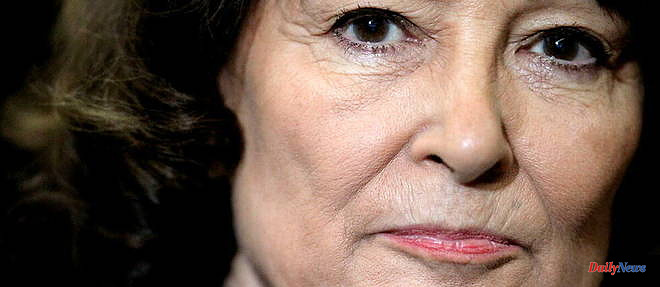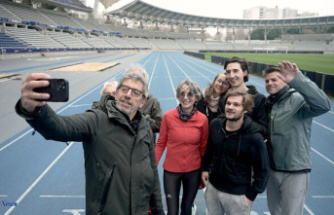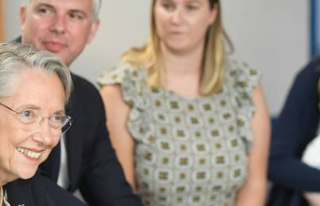After the historian Antoine Compagnon and the Nobel Prize for Literature Mario Vargas Llosa, it is the turn of the philosopher Sylviane Agacinski to join the French Academy today. She was elected there on June 1 against five other candidates: the historian Bertrand Lançon, the poet Éric Dubois, and illustrious unknowns, Yves-Denis Delaporte, Jean-Yves Gerlat and Eduardo Pisani, who have fun applying each year. The woman of letters, a former university professor, had applied on May 4.
If only one campaign was enough for him to seduce the members of this institution founded in 1635, four elections and more than twelve ballots will nevertheless have been necessary for the Immortals to appoint Jean-Loup's successor. Dabadie in chair no. 19. The difficulties encountered by the academicians in agreeing on the name of the replacement (or rather, in this case, the replacement) of the screenwriter, who died on May 24, 2020, speaks volumes about the fracture lines that cross the French Academy.
In May 2022, a first day of election was unsuccessful. In the absence of a qualified majority deciding between the candidates, no name had come out of the hat. In the fall, Frédéric Beigbeder and Benoît Duteurtre had not convinced the Immortals of their qualities to integrate the dome of the Quai de Conti. Last March, finally, a third "white election" was pronounced, failing to be able to decide between the journalist of Figaro Éric Neuhoff and the poet Alain Borer of the three other candidates.
Sylviane Agacinski is the tenth woman to join the French Academy after Marguerite Yourcenar (in 1980), Jacqueline de Romilly (in 1988), Hélène Carrère d'Encausse (in 1990), Florence Delay (in 2000), Assia Djebar (in 2005 ), Simone Veil (in 2008), Danièle Sallenave (in 2011), Dominique Bona (in 2013) and Barbara Cassin (in 2018). However, parity is far from being achieved at the French Academy since only seven women currently sit there among 28 men.
Born in a small town in Allier on May 4, 1945, trained in philosophy at the University of Lyon, notably by Gilles Deleuze, Sylviane Agacinski was briefly a journalist before turning to teaching. Associate professor of philosophy, specialist in Kierkegaard, she taught in various establishments in Pas-de-Calais and Aisne before joining the Lycée Carnot (Paris 17th) and participating in the founding of the International College of Philosophy alongside Jacques Derrida (1930-2004), with whom she had a son, in 1984. However, it was at the École des Hautes Etudes en Sciences Sociales (Ehess) that she spent most of her career, from 1991 to 2010.
His favorite subject remains couple relationships and sexuality. In this regard, his positions have sometimes caused controversy. In Women between sex and gender (published by Le Seuil, in 2012), the philosopher thus threw a stone into the pond by criticizing Judith Butler's idea that the male-female distinction would be an "artificial binary" which should give way to a variety of genres.
In her essay From the carnal body to the fabricated body (Gallimard, 2019), the reluctance she expressed in the face of the risks of "commodification" of the human body also hit the headlines. The fear she had of seeing procreation turn into a business led her to write about her reservations about the legalization of surrogacy (GPA). It was enough for his detractors to denounce the "right-wing" of an intellectual who has, moreover, long been an activist in the Socialist Party. The interested party explained this, pointing out on the contrary that her position on surrogacy results from her mistrust of the "ultra-liberal ideology" which perverted the slogan "my body belongs to me" of the feminists of the 1970s.
The date of reception of Sylviane Agacinski at the Academy has not yet been decided. But the next election within this very closed circle is already fixed. It will take place on Thursday, June 22, for chair number 6 announced vacant during the Thursday, April 27 session. The poet Hédi Kaddour, who received the grand prize for the novel from the French Academy in 2015, appears to be the big favorite to succeed Marc Fumaroli (1932-2020). Only three seats will then remain to be filled: those of Jean-Denis Bredin, Valéry Giscard d'Estaing and René de Obaldia.












